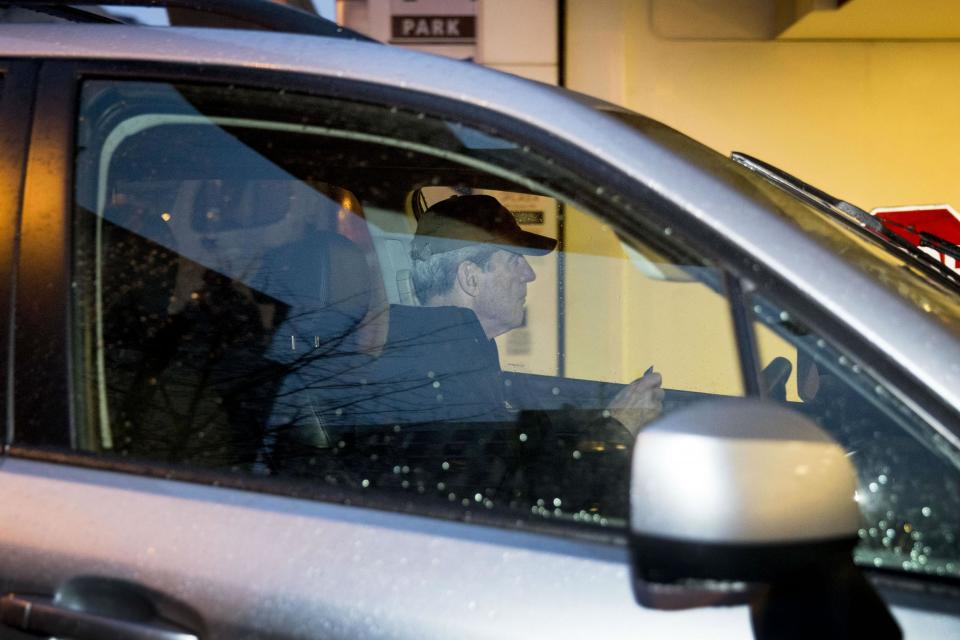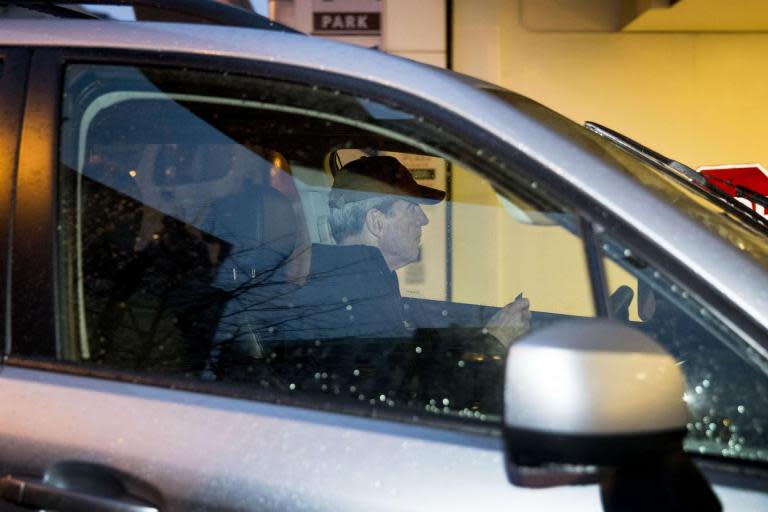Robert Mueller report: One last job for the man who took on the Mob
In May 2017, Robert Mueller addressed a group of graduating students at Tabor Academy in Massachusetts. He spoke in flat tones and used direct language.
“Whatever we do, we must act with honesty and with integrity, and regardless of you chosen career, you are only as good as your word,” he told them.
“You can be smart, aggressive, articulate and indeed persuasive, but if you are not honest, your reputation will suffer, and once lost a good reputation can never, ever be regained.”
Mueller’s words are newsworthy not as much for their content, but that he spoke them at all. Since he was appointed special counsel following Donald Trump’s firing of FBI chief James Comey, they appear to have been the only words he has uttered in public.
Mueller’s long-held preference, and an approach he stuck to as be investigated Russia’s alleged interference in the 2016 election and possible collusion with Donald Trump’s campaign – a task now concluded, attorney general William Barr announced on Friday – has been to let his work speak for him.
Indeed, had Tabor Academy – where the veteran law enforcement official’s granddaughter was among those graduating – not secured his agreement to speak before deputy attorney general Rod Rosenstein asked him to serve as a special counsel, it is unlikely he would have uttered a word.
Mueller, say those who have known him the best, has never sought the spotlight. The work, and a sense of service, were always rewards in themselves.
“One of the reasons I went into the Marine Corps was because we lost a very good friend, a Marine in Vietnam, who was a year ahead of me at Princeton,” he said in a rare interview in 2002. “There were a number of us who felt we should follow his example.”
It is hard to imagine a more high profile or high pressure investigation than the one Mueller and his team have just competed. Indeed, in recent history observers say, perhaps only Watergate, the Iran-Contra Affair, and the sprawling Whitewater probe headed by Kenneth Starr and led to the impeachment of Bill Clinton, are on a par.
“It was inevitable that a special counsel probe into possible coordination between the president’s campaign and a foreign government, particularly when allegations of Russian interference emerged during the campaign itself, would be a high profile and controversial endeavour,” Bradley Moss, a Washington-based national security lawyer, told The Independent.
“It was made more high profile not only by consistent media coverage, but also by the circus of Trump world figures testifying before Congress, leaks about who was interviewed by the special Counsel, and the president’s regular and ongoing twitter tirades”.
..This is a terrible situation and Attorney General Jeff Sessions should stop this Rigged Witch Hunt right now, before it continues to stain our country any further. Bob Mueller is totally conflicted, and his 17 Angry Democrats that are doing his dirty work are a disgrace to USA!
— Donald J. Trump (@realDonaldTrump)
He added: “The cherry on top, is that the results could, depending on the details, potentially lead to the impeachment and conviction of the president.”
At this point, we still do not know what Mueller concluded about the actions of Trump and his closest aides, other than that he has not recommended further indictments. Even now, Mueller has managed to be one of the rarest things in the nation’s capital – somebody who has not leaked.
One reason for this was the measures enacted by Mueller. Reuters said that each day members of his team arrived for work, they were made to place their mobile phones in a locker outside of the office suite.
The whole of the suite in southwest Washington had been designated a Sensitive Compartmented Information Facility (SCIF), intelligence speech for an area that has restrictions to ensure secret information stays secure, it said.
Then, there has been the personal bearing of the special counsel.
Robert Swan Mueller, 75, was born into a live of privilege, and was captain of the soccer, hockey and lacrosse teams at private school before studying at both Princeton University and New York University. He then joined the Marine Corps and served as an officer in Vietnam. Aged just 22, he was wounded in action and was awarded the Bronze Star and the Purple Heart.
As a lawyer, Mueller served in private practice before becoming a government prosecutor. In Massachusetts he pursued major financial fraud, corruption and terrorism, before being appointed the United States assistant attorney general in charge of the department of justice criminal division. In that post, he oversaw the prosecution of the Lockerbie coming and the Gambino crime family boss John Gotti.
“I have always loved investigations,” Mueller said in the same 2002 interview. “I love everything about investigations. I love the fingerprints and the bullet casings and all the rest that comes along with doing that kind of work.”
In 2001, George W Bush nominated Mueller to head the FBI. He was sworn into the job a month before the attacks of 9/11. He served in the role for ten years, before Barack Obama him to stay on for another two when he became president. When he retired in September 2013, he was replaced by former assistant attorney general James Comey, whose firing by Trump on May 9 2017 led to his appointment as special counsel a week later.
Throughout his time as special counsel, he Mueller has been a study in moderation and professionalism, choosing to avoid the media. In this, the man who has become known for combining tailored Brooks Brothers pinstriped suits with a $35 Casio DW-290 watch, has stood in sharp contrast to Starr, the flamboyant Republican lawyer who probed Clinton and helped ensure the events became a circus.
“From all appearances, Mueller has conducted his investigation with dignity, speed and intense focus. There have been no identifiable leaks out of his office, and the only way we have learned anything directly from his team has been through indictments and legal filings,” said Mr Moss.
Kathleen Clark, professor of law at Washington University in St Louis, said she believed one stark contrast between the investigations carried out by Starr and Mueller, was that the Russia probe was headed by a career prosecutor. He also chose prosecutors for the department of justice for his team. She said Mueller’s performance compared “very favourbly” to that of Starr.
Mueller faced pressure from almost the moment he started work. He and his team of lawyers have interviewed dozens of White House officials and members of Trump’s campaign team and ploughed through thousands of documents.
He also received written answers from the president, who has not only repeatedly denied there was any collusion, but attacked the investigation as a witch hunt. On numerous occasions, there has been speculation Trump was about to shut down the probe.
In the summer of last year, Trump attacked Jeff Sessions, then the attorney general on Twitter.
“This is a terrible situation and Jeff Sessions should stop this Rigged Witch Hunt right now, before it continues to stain our country any further,” said the president, who fired Sessions last November. “Bob Mueller is totally conflicted, and his 17 Angry Democrats that are doing his dirty work are a disgrace to USA!”
Mueller’s work is complete. A small team of prosecutors will remain in their positions for a short term. Mueller will be able to go back to doing whatever he was before all of this.
Instead, the focus will shift to a fight over how much of his report is made public. Mr Barr has said he wants to make available as is legally possible. At the same time, even as Democrats demand the entire report be published, the White House is preparing to invoke executive privilege to prevent the disclosure of any confidential conversation the president had with aides.
“The saying is ‘it ain’t over until the fat lady sings’,” said Ms Clark. “In this case, the fat lady singing is when the public and the Congress are able to see the report.”

 Yahoo News
Yahoo News 

